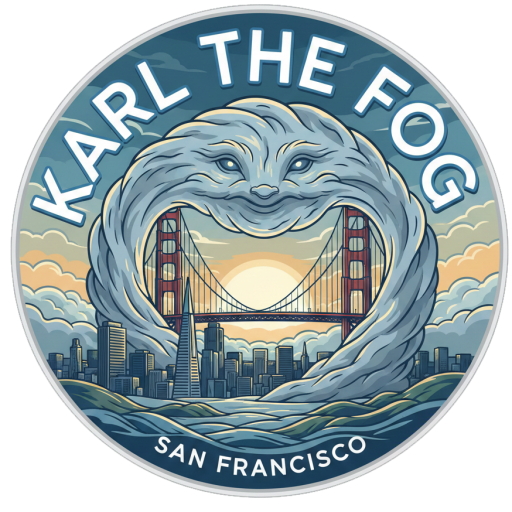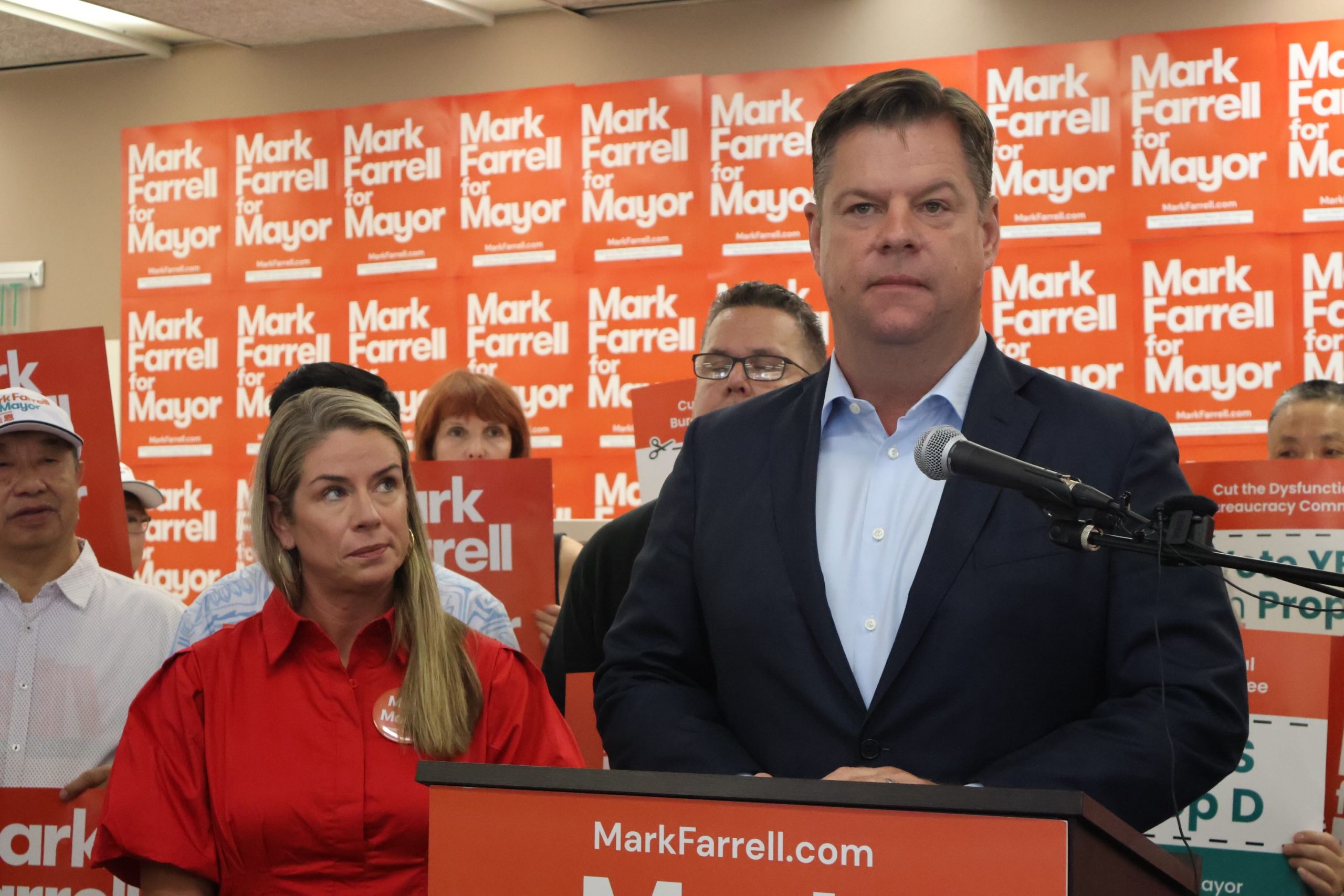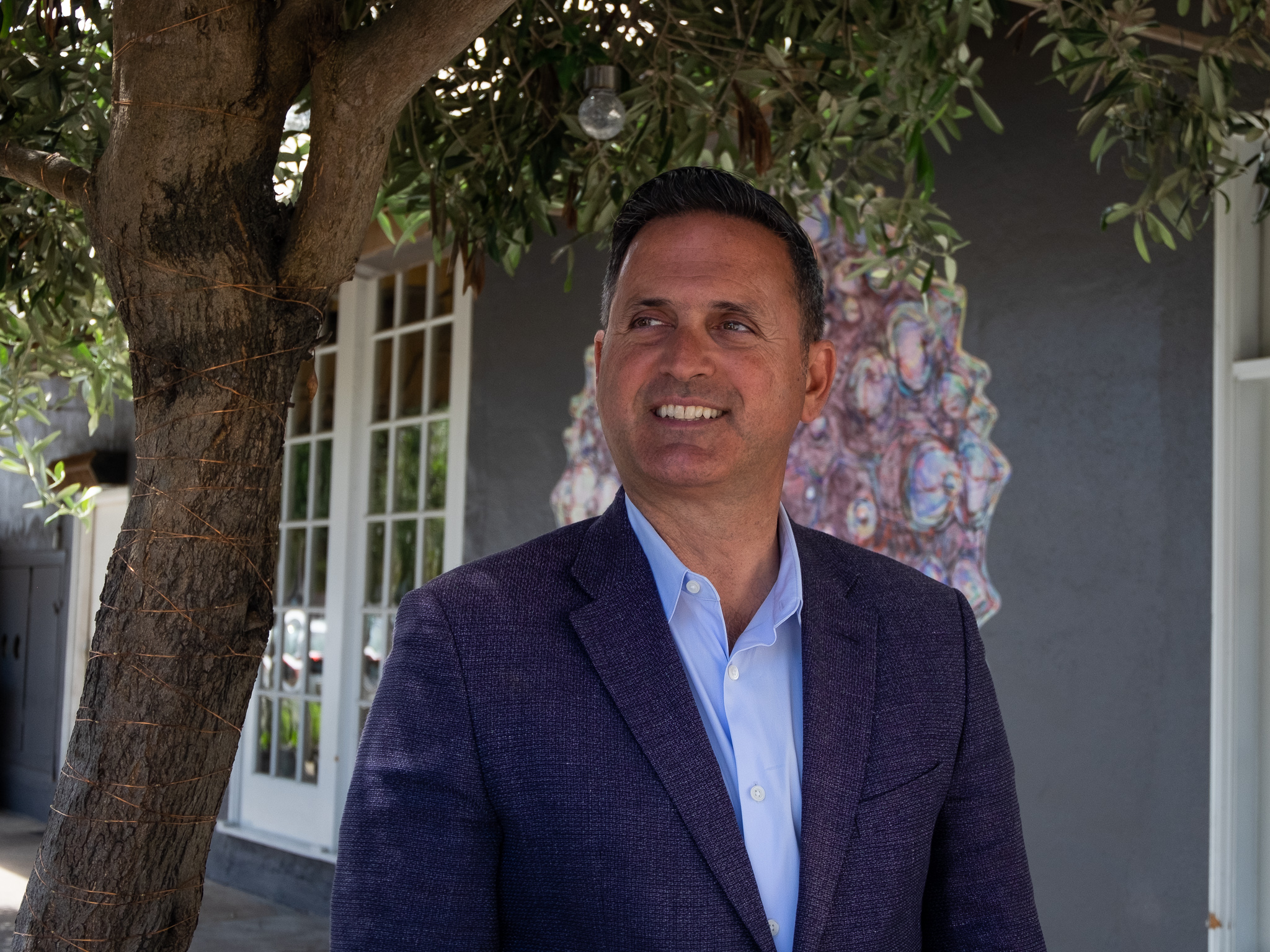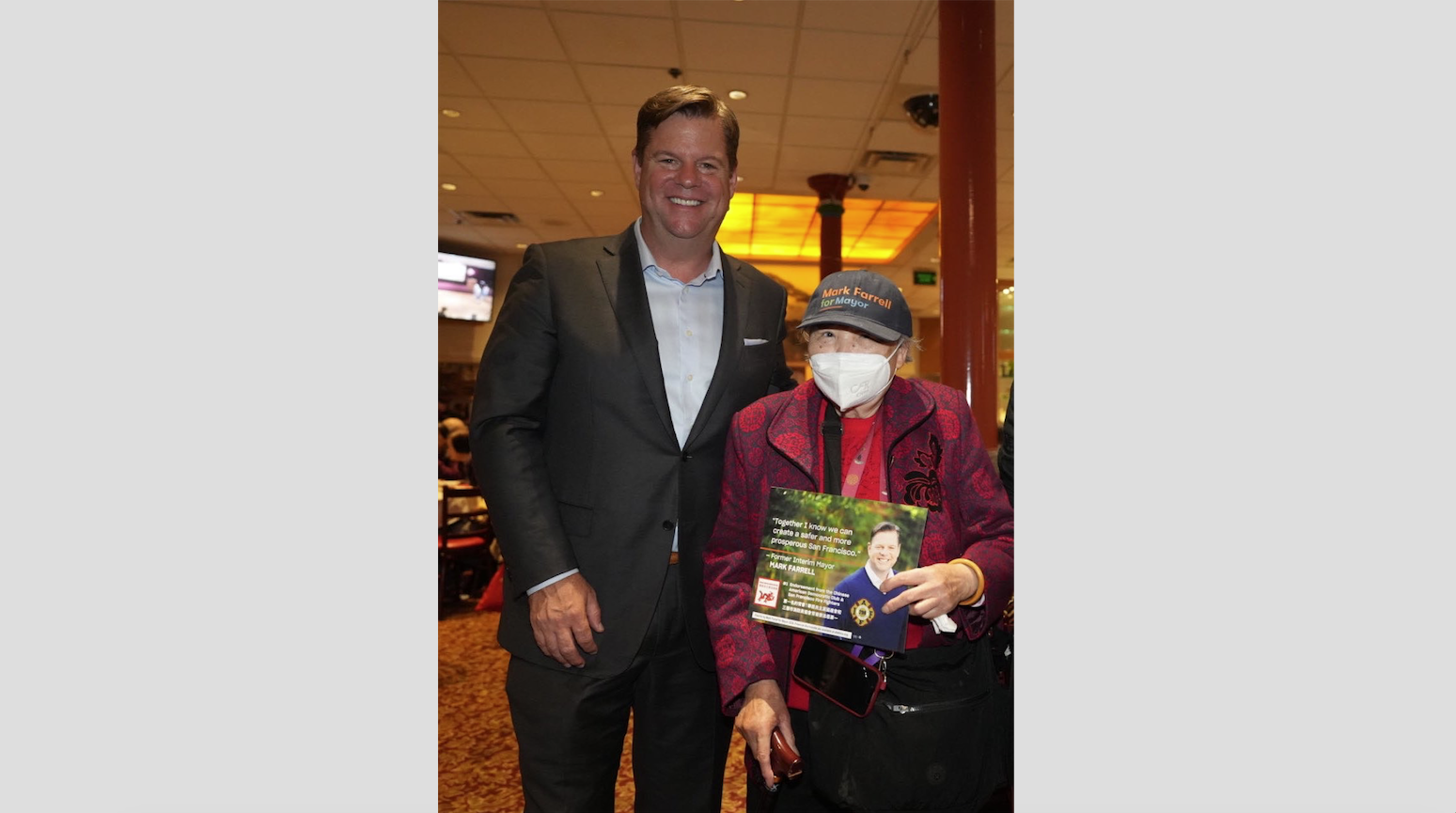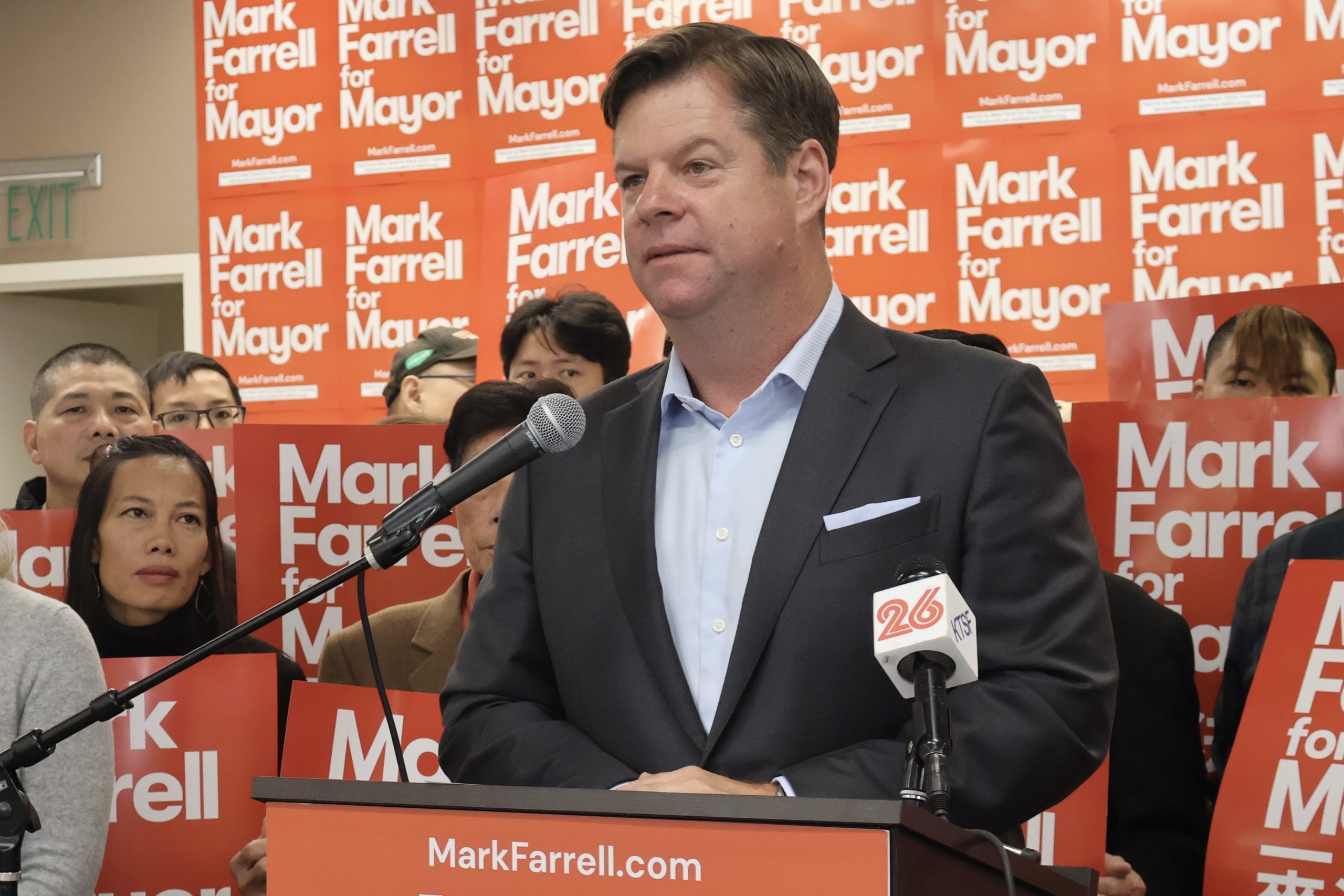[ad_1]
Some 45 minutes prior to mayoral candidate Mark Farrell’s press conference announcing his preferred ranked-choice voting strategy, a consortium including three former San Francisco mayors made public a letter calling for Farrell to be criminally investigated.
The letter was sent to Attorney General Rob Bonta and DA Brooke Jenkins and signed by former mayors Art Agnos, Willie Brown and Frank Jordan. It was also signed by former City Attorney Louise Renne; former state senator Mark Leno; former supervisor and retired judge Quentin Kopp; former supervisor Angela Alioto; former assistant district attorney and current criminal defense attorney Randy Knox; and veteran Bay Area attorney John Keker.
The letter follows reporting by the San Francisco Chronicle and Mission Local regarding the commingling of funds between Farrell’s mayoral campaign committee and a ballot measure committee supporting Proposition D. The arrangement has enabled Farrell to effectively bypass the $500 campaign contribution limit by using the ballot measure committee to cover costs for his candidate campaign.
Farrell’s ballot measure committee has raised $2.4 million. His campaign committee has raised $1.8 million. The letter also claimed that Farrell’s Arizona-based legal team is not licensed to practice law in California.
“We urge you to investigate and take action now before the election,” reads the letter to the AG and DA. “A prima facie case against Mr. Farrell can be established on publicly available records alone. If you fail to act promptly Mark Farrell will have exploited inaction by ethics officials and law enforcement authorities alike to unlawfully funnel hundreds and thousands of dollars into his campaign for mayor and perhaps prevail as a result.”
Political observers sympathetic to Farrell dismissed the call to the AG and DA as “a weak-sauce ethics letter” and “political theater.” At today’s press conference, Farrell dismissed it with three words: “What a joke.”
“Each of these former mayors is supporting one of my political opponents,” Farrell continued. “This is the machine trying to attack me as a front-runner in this race. That is blatantly transparent and should be transparent to every single San Francisco voter.”
Farrell said Agnos, Brown and Jordan “have no idea what they are talking about” and that “I will stand behind what we did every single day of the week.”
Signatory Angela Alioto, a former supervisor and mayoral candidate, replied “Bottom line, the attorney general for the state of California will decide whether we seminal lawyers and judges know more about what we’re talking about than Mark Farrell. Added Knox, “I’m disappointed voters are not more concerned about what appears to be a violation of the campaign finance laws. But elections are not entrance exams, they’re popularity contests.”
Agnos noted that the signatories of the letter had more than 200 years of collective experience in government: “You’re talking about one of the finest city attorneys we’ve had, Louise Renne, Angela Alioto, Willie Brown — Art Agnos and Quentin Kopp? I think that is a desperate defense coming from a shaky candidate.”
This was not the subject Farrell had intended to discuss when he gathered the press to his West Portal headquarters. Rather he wanted to impart that he hoped that voters would leave Mayor London Breed and Board President Aaron Peskin off their ballots entirely — an “Anyone but London and Aaron” strategy.
Farrell today did not specify who he would rank second and third, but solicited second-choice votes from Daniel Lurie supporters. Lurie’s campaign has not communicated to voters how to spend its secondary votes and is, in general, running a campaign against “City Hall insiders.”
The choice to appeal to Lurie’s base appears to be a u-turn in Farrell’s strategy. Farrell’s campaign has staunchly opposed Breed from the get-go, but in the last two weeks Farrell’s campaign has sent out three emails as well as print material criticizing Lurie for pouring his own money into his campaign and his track record at a homelessness nonprofit. One reads: “This is the problem: someone’s first real job shouldn’t be as the Mayor of San Francisco. Our city can’t afford a leader who will have to learn on the job.”
Today, Farrell mitigated those statements: “I do not agree with his tactics. I do not agree with his lack of experience. But I also recognize that many of his supporters want the exact same thing that I do: Real change in San Francisco and making sure that neither London Breed nor Aaron Peskin leads our city moving forward.”
The mayor’s race is tight. Top contenders Breed, Lurie and Farrell are within the margin of error, according to several polls. Peskin’s campaign has also appeared to gain traction: He received the highest share of individual donor contributions during the last reporting period.
The strategy Farrell pushed today differs from that promoted by moderate influence groups, namely GrowSF and TogetherSF. GrowSF in its voter guide urged voters to only rank Breed, Lurie and Farrell – in any order and not to rank Peskin. Meanwhile TogetherSF, a political advocacy group closely aligned with Farrell, urged voters to rank him first, put Breed and Lurie as second or third and leave Peskin off the ballot.
Farrell’s strategy follows an alliance with District 11 Supervisor Ahsha Safaí. Last week, the two candidates announced they would rank each other in second place. Safaí has trailed behind the other candidates in the race and his votes are likely to help boost Farrell. If Safaí is indeed eliminated in the early rounds of voting, getting Farrell’s secondary votes would not benefit him.
San Francisco employs a ranked-choice voting system for most candidate races. Voters can rank up to ten candidates in order of preference. If a candidate wins a majority of first-choice votes, they win. If no candidate wins a majority in the first round, the candidate who received the fewest votes is eliminated and their votes are redistributed, and so on, until a candidate receives a majority.
[ad_2]
Source: missionlocal.org
